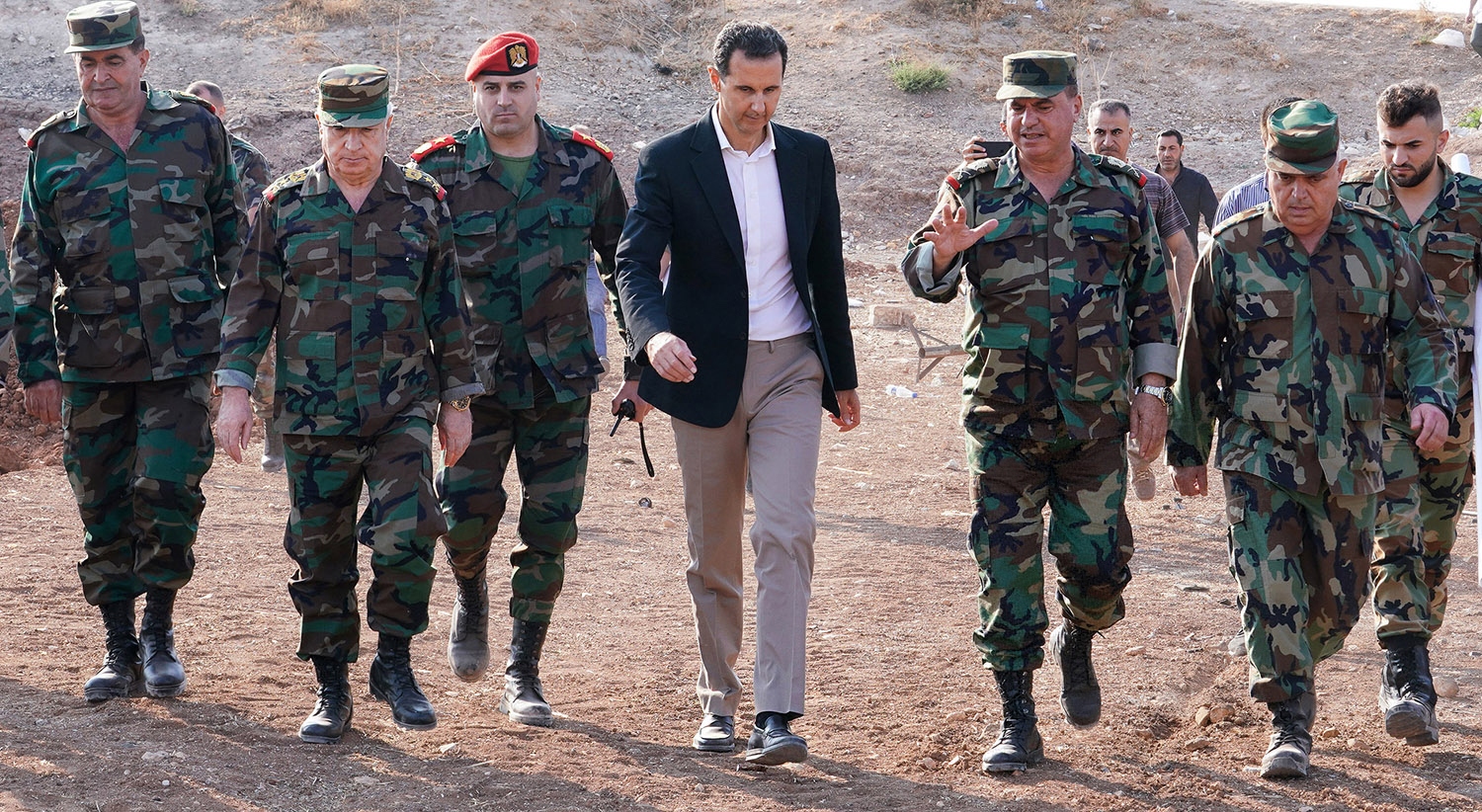More casualties likely unless war in NW Syria can be stopped
- By Sajjad Malik
 0 Comment(s)
0 Comment(s) Print
Print E-mail China.org.cn, January 1, 2020
E-mail China.org.cn, January 1, 2020

Idlib in north-west Syria is the last rebel bastion controlled by former al-Qaeda affiliate, Hayat Tahrir Al-Sham. The town with its governorate is highly important both for the rebels and government, making the ongoing struggle for it such a make-or-break mission for both sides.
After establishing control over 70% of the country, Syrian leader Bashar al-Assad is anxious to occupy the last outpost of rebellion without wasting any more time. By taking over Idlib, he would be able to claim a complete victory.
Loss of Idlib would mean an end of rebel rule in any part of Syria and the prolonged challenge to the regime, leaving opposition groups with nothing after nine years of armed struggle.
Such murky calculations are behind the fierce fighting taking place in the Idlib region. Government troops unleashed fresh assaults after mid-December as they tried to break through rebel lines.
According to the Syrian Observatory for Human Rights, about 80 civilians have been killed by air and artillery attacks in December. Separately, U.N. estimates show that more than 235,000 people have fled the region in that month alone.
Idlib has been in the crosshairs right from the beginning of the civil war in 2011. After several offensives and counterattacks, by 2017, the opposition forces had consolidated control, making it a rival seat of government under the tutelage of Hayat Tahrir Al-Sham.
Damascus abandoned it to its fate for some time as the government forces tried to push back the Islamic State which was seen as the major threat not just for Syria but for the world. The formidable threat receded in 2019 after defeat of ISIS and the killing of its leader Abu Bakr al-Baghdadi.
The initial assault to recapture Idlib was launched last April. Weeks of fighting resulted in nearly 1,000 civilian deaths while over 40,000 were displaced. Later, a truce was agreed in August but aerial bombardment went on, piling up casualties among both civilians and fighters.
December was crucial as government made concerted efforts to break the stalemate around Idlib by using massive force. The Syrian army in a recent statement said it seized 320 square kilometers in territory over the space of several days.
The army also called on the civilians to leave the areas under jihadist rule, stressing to continue the fight until Idlib was retaken. However, the rebels, as well as the civilians, are not going away easily, creating fears of more deaths.
Over three million people live in Idlib province. They also include several thousand refugees from other areas where war was raging. They should now prepare to flee for the second time for life as uncertainty looms large.
Turkey, France and the U.N. have called for de-escalation in order to avoid more losses. Ankara is making effort for a new ceasefire agreement to replace the August truce. The efforts for peace are supported by the U.S. President Donald Trump who tweeted that Turkey was "working hard to stop this carnage."
The senseless civil war has so far killed more than 370,000 people and uprooted millions more. The misery of all those living through these bloody years is unfathomable. At least the lucky ones who have survived should be given a chance to live a better life.
Thousands more may die or suffer displacement if urgent measures are not taken to control the situation around Idlib. A lot of responsibility lies on the shoulders of the major parties. They should not allow the first major slaughter of 2020 to take place in Idlib.
Talks should be held to end the fighting. If peace is not achieved through talks, at least the civilians should be assigned "peace corridors" to leave the embattled zones.
Sajjad Malik is a columnist with China.org.cn. For more information please visit:
http://www.china.org.cn/opinion/SajjadMalik.htm
Opinion articles reflect the views of their authors, not necessarily those of China.org.cn.
If you would like to contribute, please contact us at opinion@china.org.cn.






Go to Forum >>0 Comment(s)